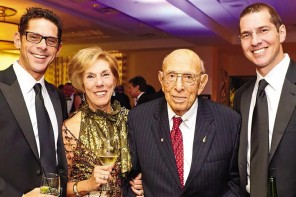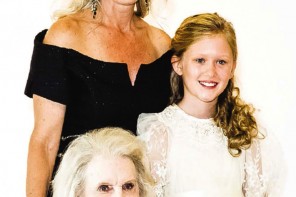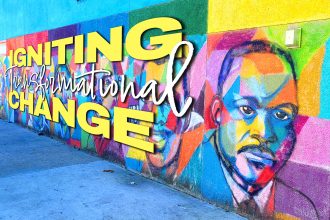In Northeast Florida, as throughout the country, young philanthropists are veering from their parents’ and grandparents’ traditional approaches to giving to their community. No less generous and passionate about their causes, they are more hands-on in terms of the impact of their money, time and talents. They want to know the deal and they use technology to find out before donating a dime. They care about outcomes and help make decisions. They are all in.
And they better be. They have a daunting responsibility. According to a report by the Center on Wealth and Philanthropy at Boston College, newly updated data shows that an estimated $59 trillion will have been transferred from 93.6 million American estates between 2007 and 2061—the greatest wealth transfer in U.S. history. Heirs will have received $36 trillion, with the rest going to charities, estate taxes and estate closing costs.
To address what some observers are calling this “New Golden Age of Philanthropy,” nonprofits and academic institutions are conducting studies and programs to encourage philanthropy and help families make informed decisions.
“For a period of time they might want to give to the same organizations their parents did, but they really are interested in other things. So the heart and soul of those conversations can be very difficult for parents and kids,” said Joanne E. Cohen, vice president, philanthropic services for The Community Foundation for Northeast Florida who specializes in next generation giving. “Generations behind the Baby Boomers—X, Y and Z—acquire information differently. They are becoming more mile-deep than inch-across as far as giving. Neither is good or bad, but it’s different from how their parents and grandparents gave.”
In response to questions from funders on how to teach children and grandchildren about philanthropy—which concerns time and talent as well as money, which they often don’t have until later—The Community Foundation invited Sharna Goldseker, a national expert in next generation giving, to speak to participants of its Weaver Philanthropic Initiative and at the Donors Forum of Northeast Florida.
Goldseker is executive director of 21/64, a New York City-based nonprofit consulting practice specializing in next generation and multigenerational engagement in philanthropy. Its name is a symbol of its approach to family collaboration, 21 symbolizing when young people come of age and 64, when people typically think about their legacies.
“I was thrilled to meet next generation funders in Jacksonville who have a real commitment to their local community and an earnestness and curiosity for how they can utilize their resources to make a difference,” she said.




